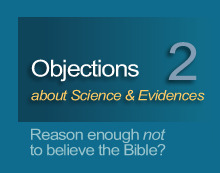WHY THIS?
This is a claim that is not well substantiated, but provides an opportunity to reinforce confidence in the formation of the Bible.
"History will be kind to me for I intend to write it."
- Winston Churchill
"Histories, as we know them today, never existed even as late as the New Testament; only collections of mythmaking."
RESPONSE:
I don't pretend to be an expert on every history and historian I have quoted, or on ones a particular reader suggested, but I can speak more confidently of the Egyptians. Many of their accounts of wars, famines, politics, etc. are well-recorded, and are not inseparable from their religion. I do not have a book reference as this comes from an Egyptologist who happens to be my father, who has worked with the American Research Center in Egypt, and was asked to speak at this year's ARCE gathering of Egyptologists. Indiana Jones he's not (sorry Dad), but well-researched he is. The history of recording history is not, or not always, an impossible amalgamation of mythology.
Histories that might be uncovered as untrustworthy would be just that - untrustworthy. However it would be incredibly fallacious to reason that, because of that, all histories are untrustworthy (guilt by association).
On the other hand, one can't even read yesterday's news without scrutiny. Cautious reading is always a sane strategy. "Ah-ha! So the idea of the Bible as all true must still be dismissed!?"
No, the Bible is not dismissed on account of careful reading - it is accepted on account of careful reading. Careful reading is what reveals the Bible to be true, and resolves what can appear to some to be contradictions. I won't be so arrogant as to say that in 2,000 years the Bible's critics have finally found all the so-called contradictions they're ever going to find, but I do say it always seems to be the same one hundred or so wherever I look. More careful reading or study would probably answer all these.
For example, careful reading resolves the two provided lineages of Christ, or James Usher's attempt to add up all the generations in the Bible to come up with the age of the Earth. Usher arrived at 4004 BC. However, he made one scholarly mistake (if not many more). He assumed the genealogy was complete; a father-son listing of every generation that had lived. Had he used less math and more bible study, he would have caught that numerous genealogies in the Bible are representative listings, not a sequential biblical census.
Another example: Jesus is sometimes called the Son of David. "Ah-ha! He was the son of Joseph, no? Another contradiction!"
No, he's the Son of David in the sense that David was greatly revered, and Jesus was worthy enough to be identified with that greatness. In ancient Hebrew, "son of" is or can be equivalent to "descended from". Jesus was also descended from David; so the "Son of David" title would again be correct. The ancient Egyptians used the very same representative system in their recording of genealogies which further corroborates this textual practice (fact, not mythmaking).
See also:
Introduction to investigating the Bible
Does archaeology confirm or deny the claims of the Bible?
Perfect parallels?



Expanded!